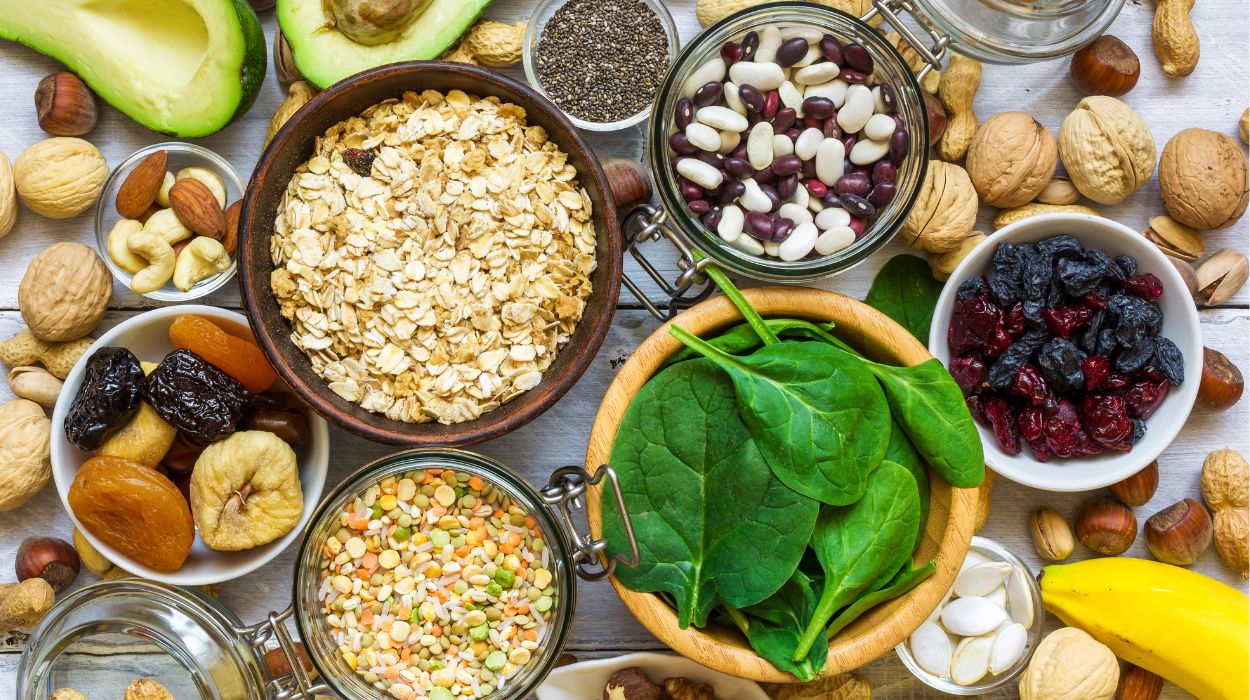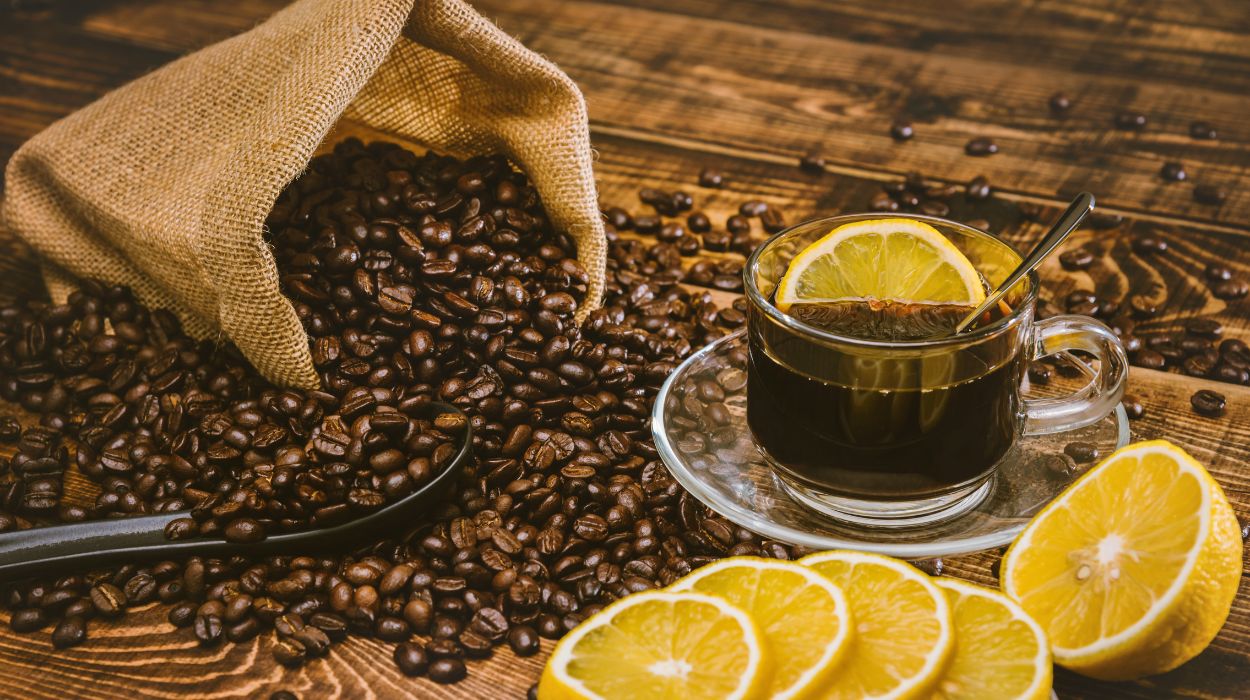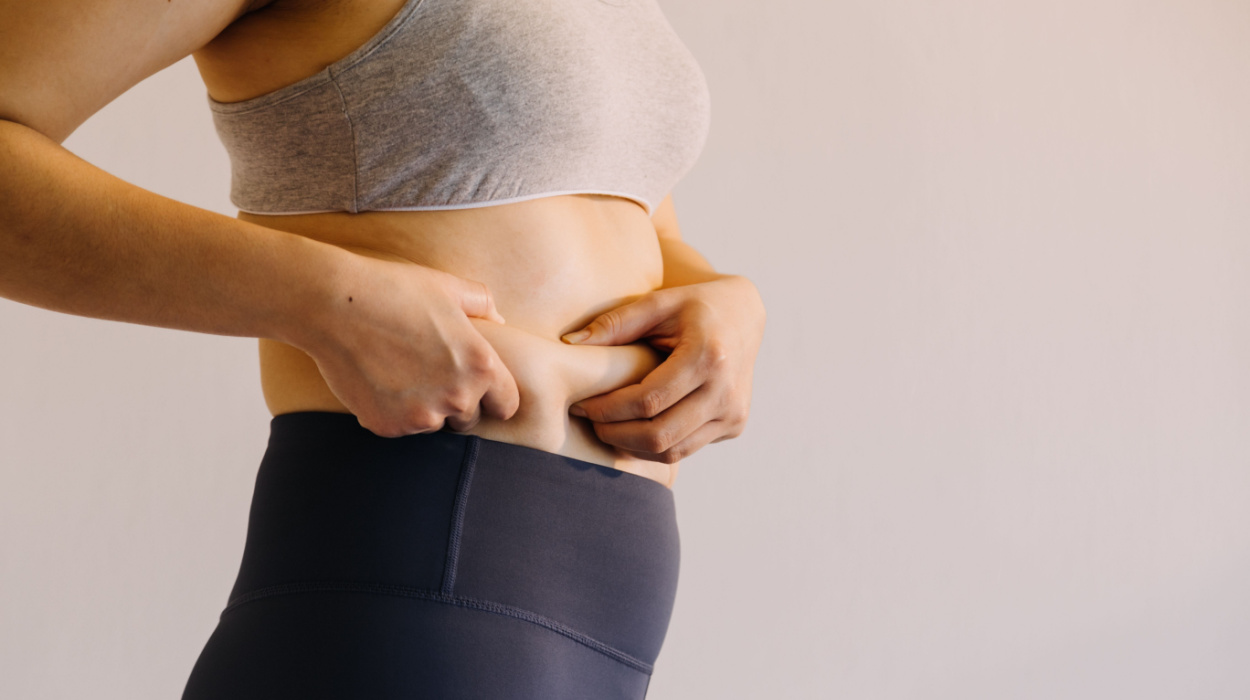Increased water weight occurs when there is swelling as a result of fluid accumulating in your tissues. It can be caused by different factors including eating[1] salty food, pregnancy or menstruation.[2] All of these increase fluid retention.
When water weight builds up, it can cause discomfort. It can make you look bloated and cause your clothing not to fit. Most people want to decrease fluid retention as quickly as possible.
This article will provide options for how you can lose excess water overnight so you can feel comfortable and confident.
How To Lose Water Weight Overnight
The following steps will help you lose water weight overnight:
- Increase physical activity.
- Eat potassium-rich foods.
- Decrease salt intake.
- Add a magnesium supplement to your diet.
- Reduce salt intake.
- Take dandelion supplements.
- Add caffeine to your diet.
Seven Easy Ways To Lose Water Weight Fast Overnight
If you are wondering how to lose water weight in 24 hours, several options are available. While you might want to lose it faster, such as in minutes, remember that your body adjusts to new levels of hydration and other conditions slowly, and so it usually takes a few hours to see any changes.
Increase Your Physical Activity
Workouts are an excellent option for losing water weight because they make you sweat. When you sweat, you lose water weight.[3] A workout will also shift the water[4] in your body into your muscles.
In general, exercise, especially resistance training, increases muscle mass.[5] Over time, this may help you lose the bloated look you get when you gain water weight.
You will still need to drink water when you work out to stay hydrated. However, you should still see a reduction in water retention.
Eat Potassium-Rich Foods

Eating potassium-rich foods could be your key to how to lose water weight.
Water retention weight gain is often caused by eating foods that are high in table salt or sodium. In the kidneys, sodium is excreted along with water if potassium levels are high.[6] Therefore, increasing potassium intake increases urine production which decreases water retention.
Potassium is also high in fruit and vegetables, which are an essential part of a healthy diet. It is also needed to maintain the function of all cells. This is particularly true for the ability of muscles to contract and nerves to carry impulses.[7]
An NIH review[8] reveals the body excretes about 195 mg of potassium daily. Therefore, an intake of 400-800 mg per day is recommended.
Several foods are especially high in potassium. Dried fruits, spinach, and avocado are just some potassium-rich options. They will boost your health and decrease excess water.
Reduce Your Salt Intake
People wondering how to lose water weight overnight should try reducing their sodium intake. Sodium is one of the most highly concentrated electrolytes in the human body.
When we consume salt, high levels of sodium outside the cells cause the body to retain fluid.[9] The increased sodium in the body will also decrease urine output.
When sodium levels are too high, they can cause imbalances[10] that result in fluid retention.[11] Sodium intake also increases thirst which leads to more fluid intake[12] which can contribute to water weight gain.
Add A Magnesium Supplement To Your Diet
Magnesium supplements could be the solution for people wondering how to get rid of water weight overnight.
The recommended daily intake[13] of magnesium is 300-400 mg per day. Like sodium, magnesium is an electrolyte. It interacts with electrolytes[14] like sodium and potassium. The electrolytes work together to maintain balance and reduce water weight.
Magnesium may also reduce premenstrual symptoms[15] including excess water retention. Thus, taking a magnesium supplement may be beneficial, but you may see even better results from eating magnesium-rich foods like dark, leafy vegetables, nuts, and seeds.
Reduce Carb Intake
If you are wondering how to lose weight overnight, reducing carb intake could be your solution.
After carbs are consumed and broken down they are stored in the muscles, fat cells, and in the liver as glycogen, a form of sugar that is three to four parts water. People may store 3-4 grams (.11-.14 ounces) of water[16] for every gram of glycogen they store. Reducing carb intake reduces glycogen stores and can often produce dramatic body weight loss.
A low-carb diet may not be the solution for how to lose water weight gain in minutes, but it will come pretty close.
Carbohydrates also contribute to the release of insulin.[17] The increase can boost sodium retention and cause the kidneys to reabsorb water. Low-carb diets lower insulin levels and reduce sodium and water retention.
Foods that are high in carbs are also high in calories. If you switch to a low-carb diet, you may lose water weight quickly and shed fat pounds.
Take Dandelion Supplements
Dandelion supplements, which are diuretics, are often used by people who want to get rid of water weight overnight. They are commonly used by athletes and bodybuilders who need to lose water weight[18] quickly to meet certain weight requirements.
The supplements detox the body by helping it eliminate waste.[19] They signal the kidneys to excrete urine, sodium, and salt. Some studies show they increase urination frequency.[20]
Add Caffeine To Your Diet

Research demonstrates that caffeinated beverages have diuretic properties. They may help people who want to lose weight overnight. Some research shows caffeine can increase urination short term and slightly decrease water retention.[21]
These studies explain that urination increases and fluid retention decreases, with how much caffeine is consumed.[21] For example, consuming 537 mg of caffeine (about six cups) increased urination considerably, but not with only three cups.
The general recommended amount of coffee is up to two cups a day. Do not overconsume caffeine to lose water weight, as caffeine may negatively affect your sleep cycle, leading to food cravings and weight gain instead. Additionally, excessive caffeine can lead to dehydration.[22]
Can You Lose Weight Overnight By Drinking Water?
Drinking water has been known to contribute to weight loss.[23] It increases satiety, replaces high-calorie, sugary drinks, and may boost metabolism.[23]
Water consumption can also help you lose water weight. When you are dehydrated, your body holds onto water.[24] The proper fluid balance reduces dehydration.
It also helps the kidneys[25] flush sodium and excess water out of the system.
What Is Water Weight?
Water makes up 50%-60%[26] of an adult’s body. Any additional water is considered water weight.
When water is used efficiently, it goes all over our bodies. But when there’s an imbalance, it can cause the nutrients and water to travel from our blood into our cells.[27] It goes where it’s not needed, into areas like the belly and the peritoneal cavity.
Belly fat can add to weight in the abdominal region, but there are different ways to address that as well. In this article, we will specifically focus on weight caused by water, not fat.
Causes Of Water Weight
Several factors can contribute to water retention. They include:
- Flying in an airplane: Flying produces changes in cabin pressure. Travelers also sit for long periods which reduces blood flow. Both factors contribute to water weight.[28]
- High sodium consumption: Sodium increases fluid retention in the body.[8]The more salt you eat, the more water stays in the body to keep these ions diluted.
- Certain medications: Some medications cause you to retain water.[29] They include OTC pain relievers, blood pressure medication, and some birth control pills.
- Heart failure: Research suggests that heart failure reduces the kidneys’ ability[30] to excrete salt and water and may lead to water retention.
- Pregnancy: Pregnant women retain fluids[31] due to hormonal changes that increase the production of aldosterone and cortisol. Both retain sodium and therefore water. Water retention may also be due to uterus enlargement [31] which restricts blood flow.
- Menstruation: The hormonal changes that occur during menstruation[32] can also cause fluid retention. Most women will gain water weight around two days before their period.
When To See A Doctor Because Of Water Weight
Fluid retention is typically caused by[33] temporary or adjustable issues like menstruation, high salt intake, pregnancy, hot weather, or medications. However, in more extreme cases, they can be a symptom of a serious medical condition like kidney, heart, or liver disease.
You should see a doctor if your water weight is not going away with lifestyle changes or if you suspect that it is related to a medical condition or disease.
Conclusion
Water weight is typically caused by sodium retention, hormonal changes, unbalanced diets, or pressure changes in the atmosphere. In some cases, it can also be caused by serious medical conditions.
In most instances, you can reduce water retention by changing your diet, exercising, and taking supplements. If fluid retention persists, consider seeing a doctor.
Frequently Asked Questions
Are you wondering, how long does it take to lose water weight? In most instances, water weight will go away in 1-2 days.[34] The proper diet and exercise routine will help you lose water weight faster.
It is not necessary to make an effort to lose water weight. In most cases, it will go away on its own.[35] However, if water weight is caused by an unhealthy lifestyle, you may consider addressing the underlying cause.
Pound increases due to water weight may vary. However, recent research[36] reveals that women gain approximately 0.5 kg during their menstrual cycles. Most of the weight gain is due to fluid retention.
People who sleep less than six hours nightly have a higher BMI.[37] While lower weight can be attributed to nighttime sweating which aids with water weight loss, it is largely due to an increase in ghrelin[38] which contributes to hunger.
 Evidence Based
Evidence Based
